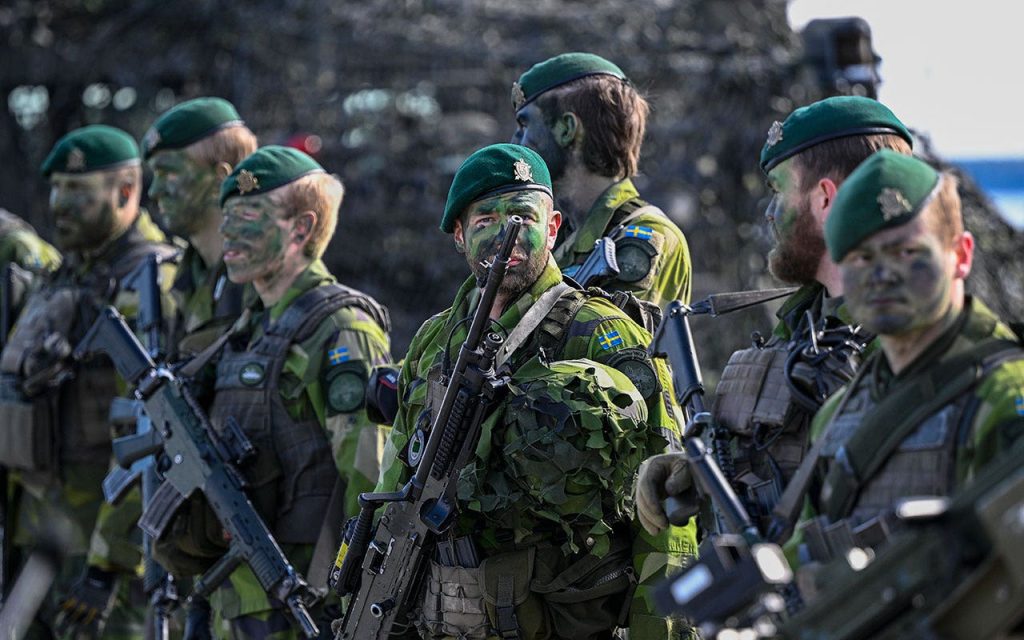A Swedish parliamentary committee has recommended that Sweden increase its military budget by nearly $5 billion until 2030 in order to strengthen its air defenses and increase the number of conscripts. This recommendation comes after Sweden joined the NATO alliance in March, departing from its longstanding policy of neutrality in response to Russia’s invasion of Ukraine. The Defense Committee, made up of representatives from eight political parties in the Swedish parliament, stated that the current serious security situation necessitates higher ambitions for defense capabilities. The report, titled “Strong defense capability, Sweden as an ally,” highlights the need for increased air defense to combat threats from unmanned flying craft, as well as the purchase of more hunting and cruise missiles. Additionally, the committee recommended gradually increasing the number of conscripts to 12,000 by 2032, up from the current 8,000.
The committee’s report also suggests expanding the navy with more personnel and follows similar moves in Sweden’s Scandinavian neighbors, Norway and Denmark. Norway announced earlier in the month that it plans to increase the number of conscripted soldiers from 9,000 to 13,500 by 2036, while Denmark intends to extend conscription to women and increase the service time from four months to 11 months. Sweden’s current military budget stands at approximately $11 billion, demonstrating a significant increase proposed by the committee. The center-right, three-party coalition of Prime Minister Ulf Kristersson is expected to follow most of the commission’s recommendations in the report, which was presented on Friday.
In addition to the call for increased military spending and bolstering of defense capabilities, the report emphasizes the necessity of preparing for potential armed attacks against Sweden or its allies, given the current geopolitical climate. Membership in NATO has prompted Sweden to reevaluate its defense strategy and priorities in order to align with its new status as a member of the alliance. The report addresses the need to address specific threats, such as unmanned aircraft, and acquire the necessary resources to effectively respond to them. The recommendations outlined in the report reflect a comprehensive approach to enhancing Sweden’s military capabilities and ensuring security in the region.
By increasing its military budget and strengthening its air defenses, Sweden aims to enhance its defense capabilities and align itself with the demands of the current security environment. The decision to join the NATO alliance has prompted Sweden to reassess its defense policies and make necessary adjustments to meet the challenges posed by potential adversaries. The proposed increase in the number of conscripts and the expansion of the navy demonstrate Sweden’s commitment to bolstering its military forces and ensuring readiness to respond to any threats. The comprehensive nature of the report underscores the importance of strategic planning and investment in defense capabilities to safeguard Sweden and its allies in an increasingly uncertain world.
The alignment with NATO and the adoption of a more assertive defense posture signal a shift in Sweden’s traditional policy of neutrality and non-alignment. The decision to increase military spending reflects a broader commitment to contribute to collective security efforts and fulfill obligations as a member of the alliance. By enhancing its air defenses, expanding the navy, and increasing the number of conscripts, Sweden demonstrates its determination to protect its territorial integrity and support its allies in the face of potential security threats. The recommendations put forth by the parliamentary committee underscore the importance of investing in defense capabilities and ensuring preparedness for any eventuality, in line with the evolving security landscape in the region and beyond.


